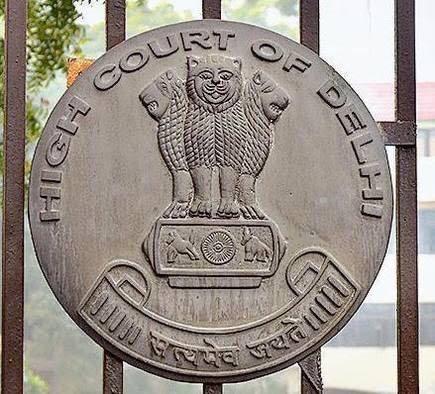New Delhi: The Delhi High Court today directed private unaided schools to provide gadgets and internet connection to economically weaker section (EWS) students for attending online classes.
A divisional bench comprising Justice Manmohan and Justice Sanjeev Narula noted: “That It is the responsibility of the schools and obligation of the State to assist EWS students to overcome all constraints that deprive them of meaningful education.”
The bench has made these observations in a petition filed by Justice for All, an NGO, through its advocates Khagesh B Jha and Shikha Sharma Bagga, seeking a direction to the government to supply free laptops or android mobile phones or electronic tablets with high-speed internet to children belonging to EWS or disadvantaged groups so that they can attend their classes by way of video conferencing just like fee-paying students in their classes. Students for whom the directions were sought included:
- A child admitted under section 12(1)(c) of the Act, 2009 in non-minority private schools.
- A child admitted under notification dated 30th December 2013 in schools which had been allotted land by government agencies at concessional rates.
- A child admitted in minority school Protected by para 65A of Society for Unaided Private Schools of Rajasthan Vs. Union of India and Another, (2012) 6 SCC 1.
Further, during the pendency of the petition, more schools started online classes and the petitioner sought modification in the prayer, which was allowed and furthermore students category was added including:
- A child admitted in government School.
- A child admitted in non-minority aided school.
- A child admitted in aided minority school prior to the judgment of the Supreme Court in Pramati Educational and Cultural Trust (Registered) And Others vs. Union of India &Ors., (2014) 8 SCC 1.
- A child suffering from multiple disabilities who have opted for home-based education as his or her choice under proviso Section 3(iii) of the Act, 2009.
The bench held: “This Court directs that the private unaided schools shall be entitled to claim reimbursement of reasonable cost for procurement of the said gadgets or digital equipment as well as internet package from the State under RTE Act, 2009, even though the state is not providing the same to its students.”
The judgment further stated that
“This Court is further of the view that its interpretation is in accordance with settled law that Constitutional Courts ought to give a dynamic interpretation to the provisions of the Constitution as well as a statute, particularly keeping in mind the evolving needs of the society, more so when such an interpretation is in consonance with the intent and object of the Act.”
The bench has also directed for the constitution of a three-member committee within a week comprising Secretary, Education, Ministry of Education, Central Government or his nominee, Secretary Education, GNCTD or his nominee, and a representative of respondent No.18 to frame a Standard Operating Procedure (SOP) for identification of standard gadget(s)/equipment(s) as well as the manufacturer/supplier and internet package so that EWS/DG students can access elementary education through digital online means.
The committee will identify gadgets or equipment taking into account all relevant factors including their utility, ease of operation, cost, maintenance charges, the life of the gadgets, the reputation of the manufacturer, child lock, etc. within two weeks from its constitution. Further, the committee will also decide as to whether any gadgets or equipment needs to be purchased by cluster bidding or by individual schools or hired by way of lease or license agreement. The private unaided schools shall either purchase or hire or lease the gadget(s)/equipment(s) as directed by the said Committee and supply the same along with internet package to the EWS/DG students within further two weeks.
Justice Manmohan noted that
“According to many thinkers, the world would be divided by technology not by ideology in the near future. The initiatives/decisions that central as well as state governments and local authorities take now will have lasting impact on hundreds and millions of young people and on the development prospects of India for decades to come.”
In addition to this, Justice Narula stated that
“We must also acknowledge that because of the economic impact of the Covid-19 pandemic, there could be a tendency amongst the underprivileged children to abandon education for work. This likely fallout needs to be immediately addressed. Otherwise, the gap, between the learning experiences of children from economically weaker sections as against the relatively privileged children, will widen. The fact that EWS students are today offered education through a mode that is based on this divide would further push them back. One of the many steps needed involves equipping such students with means to have a meaningful education. They need to have access to a reliable internet connection to join virtual classrooms along with technological devices. The precious right guaranteed by the Constitution of India and the RTE Act has to be replicated in the online environment. The private unaided schools have a responsibility of removing all barriers for EWS students that would hinder their access to education. The RTE Act also puts the onus on private schools to promote inclusion and equality.”
Justice Narula addressing to the students noted that “I sincerely hope that students are able to experience the joy of schooling with friends and classmates in physical classrooms, very soon.”
Read the judgment here;
MMH18092020CW30042020_121008-India Legal Bureau



Comments are closed.